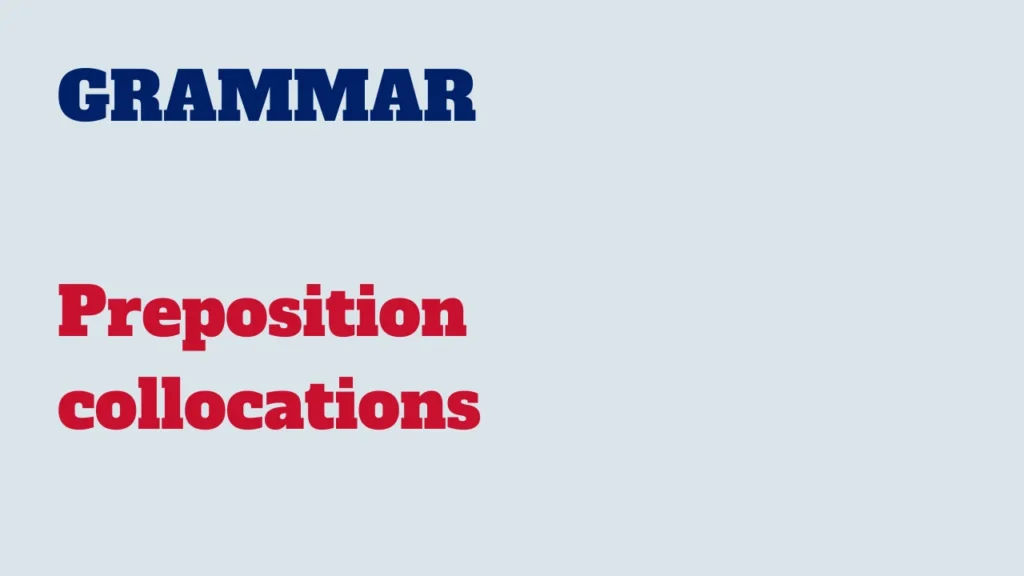Preposition collocations are keystones in the intricate structure of grammar, providing the glue that binds words and ideas together.

In this lesson, we embark on a journey to unravel the significance of preposition collocations, exploring their role in constructing meaningful sentences and gaining practical insights into their usage.
Defining preposition collocations
Preposition collocations refer to the habitual pairing of prepositions with specific words, forming combinations that convey precise meanings and relationships in a sentence.
Examples:
Depend on,
comply with,
interested in.
Categories of preposition collocations:
Time-related collocations:
Prepositions commonly pair with words related to time, such as “at,” “in,” and “on,” to create meaningful connections within sentences.
Examples:
At midnight,
in the morning,
on Monday.
Place-related collocations:
Specific prepositions form natural connections with words denoting location, including “in,” “on,” and “at,” providing spatial context.
Examples:
In the park,
on the table,
at the airport.
Verb-related collocations:
Certain verbs naturally collocate with specific prepositions, contributing to the precision and nuance of language.
Examples:
Agree with,
rely on,
succeed in.
How to use preposition collocations:
Understanding context:
Context is key in choosing the appropriate preposition collocation, emphasizing the importance of considering the broader context of a sentence.
Example:
“The manager was impressed by her dedication.”
- In this case, “by” is the appropriate preposition collocation, indicating the cause or reason for the manager’s impression.
“The manager was impressed with her dedication.”
- Here, “with” is used to convey a positive feeling about her dedication. It implies a sense of approval or satisfaction.
Idiomatic expressions:
Some preposition collocations form idiomatic expressions, and their meanings may not be deduced from individual words, highlighting the richness of language.
Examples:
“Run out of” (meaning to deplete or exhaust.)
”Look forward to” (meaning anticipating or being excited about a future event.)
”Dream about” (meaning having aspirations or desires related to a specific theme.)
Mastering preposition collocations unlocks a key aspect of grammar, allowing us to decode and construct sentences with precision. These pairings infuse language with coherence, enabling us to articulate ideas with clarity and finesse. By delving into the nuances of preposition collocations and engaging in practice, you embark on a journey to wield language with mastery. Happy navigating the intricacies of grammar!



